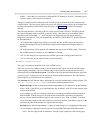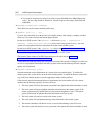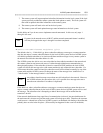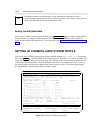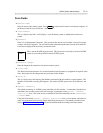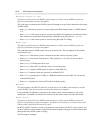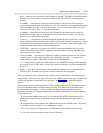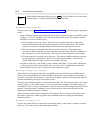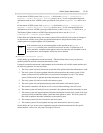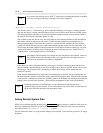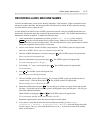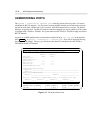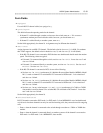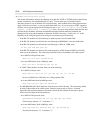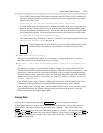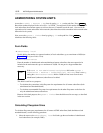
AUDIX System Administration 13-15
_ ______________________________________________________________________________________
_ ______________________________________________________________________________________
_ ______________________________________________________________________________________
On the remote AUDIX system, if the updates in field on the system : translation :
machine : audix/amis/call delivery form is set to y, it will accept updated data base
information from the local AUDIX system (provided the local system’s updates out field is set to
y).
On the remote AUDIX system, if the updates out field on the system : translation :
machine : audix/amis/call delivery form is set to y, it will send updated data base
information to the local AUDIX system (provided the local system’s updates in field is set to y).
The Remote Updates feature of AUDIX Networking must be active (see the system :
translation : remote updates form).
If these fields are left n after testing, this remote system will not notify this local system of changes to
its data base nor will this local system send update information to this particular remote system.
(neither partial nor complete updates will be permitted).
NOTE
If the customer wants to use remote updates, make sure that on the system :
appearance form the prime time field is not set for 24 hours. If prime-time is 24
hours, automatic, complete remote updates cannot run since they are scheduled to run in
non-prime hours; remote updates would only run on demand.
• network turnaround (y/n)?
Set this field to y to implement network turnaround. (This field must also be set to y on the local
machine profile for network connection turnaround to work).
If network connection turnaround is implemented, the local machine will call this remote machine and
the following sequence of events will occur:
1. The local system will notify this remote system that it has updated subscriber information to send.
2. The local system will request updated subscriber information from this remote system (if this
remote system previously notified the local system that it had updates to send). This remote
system will then send its updated subscriber information to the local system.
3. The local system will send voice mail to this remote system.
4. The local system will send updated message status information to this remote system.
5. The network connection will then be turned around and the remaining events will occur:
6. The remote system will notify the local system that it has updated subscriber information to send.
7. The remote system will request updated subscriber information from the local system (if the local
system previously notified the remote system that it had updates to send). The local system will
then send its updated subscriber information to the remote system.
8. This remote system will send voice mail to the local system.
9. This remote system will send updated message status information to the local system.
Set this field to n if you do not want to implement network connection turnaround for this specific
remote machine. In this case, only steps 1 through 4 will occur.



